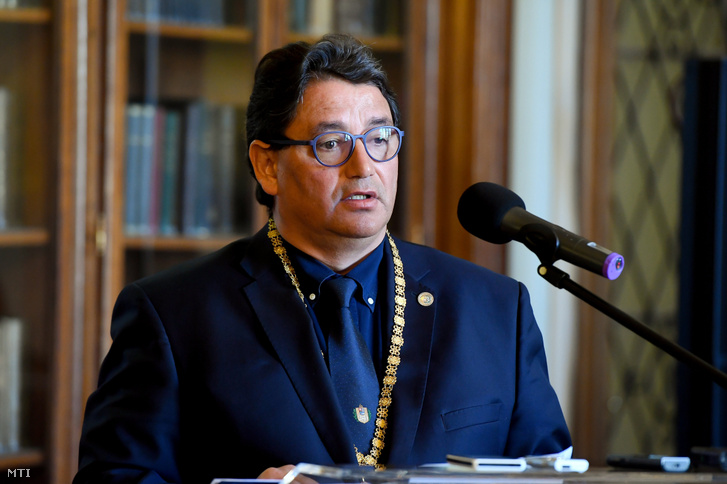Coronavirus in Hungary: Four medical universities to test 17 000 people
Rector of Semmelweis University Béla Merkely announced at an online news conference on Tuesday that four Hungarian medical schools are set to begin nationwide testing for COVID-19. They are planning to test a representative sample of 17 000 people in two weeks to get a clear picture of the Hungarian epidemiological situation.
The four universities plan to launch their testing operation on 1 May which will be spearheaded by the Semmelweis University with support from the Ministry of Innovation and Technology.
17 778 people from all over the country and all age groups above 14 selected by the Central Statistical Office were invited to the testing operation named H-UNCOVER, participants will also have to complete a short questionnaire as well.

The nationwide screening will use PCR tests which are the most reliable known method of diagnosing the disease caused by the novel coronavirus, as it is able to identify the genetic material of the pathogen, Merkely explained. PCR tests work with nasopharyngeal swab samples, but doctors will also be taking blood samples for confirmatory laboratory examinations to find possible signs of the patients' immune reactions.
Participants are informed about the tests through the mail or over the phone, they will get appointments for testing in seven regions of the country at GP's offices, medical centres, and screening buses. Mobile testing units and paramedics will assist the testing operation to make sure that the elderly or those suffering from chronic illnesses would not have to leave their homes. Testing is voluntary and free for all participants, Béla Merkely expects 70% of invitees to show up.
The four universities have divided up the counties of Hungary, according to which
- The Semmelweis University tests in the capital, Budapest, and in Pest, Nógrád, Fejér, Komárom-Esztergom, Győr-Moson-Sopron, Veszprém, and Fejér counties.
- The University of Debrecen will test in Szabolcs-Szatmár-Bereg, Borsod-Abaúj-Zemplén, Heves- és Hajdú Bihar counties,
- The University of Szeged will be screening Jász-Nagykun-Szolnok, Békés, Csongrád, and Bács-Kiskun counties,
- The University of Pécs will be responsible for Tolna, Baranya, Somogy, Zala, and Vas counties.
Using the results, a nationwide epidemiological study will be conducted about how many people are currently infected in Hungary, how many had already been through the disease, and how many are carrying the virus without symptoms and how many could have acquired immunity.
A statement by Semmelweis University says that the main task during the second phase of the coronavirus response is to determine the conditions and timetable of safely returning the country back to normal, but these plans have to be based on reliable analysis and constant monitoring. This screening operation utilising Hungarian domestic research capacities and the expertise of Hungarian scientists serves that purpose.
Since the start of the epidemic, Hungary has taken 67 172 samples from patients altogether, and although until recently, it was unclear from how many exactly, an expert of the National Centre for Public Health finally divulged at an online conference on 20 April that the 52 409 tests (at the time) were conducted on 32 509 patients. Until now, testing was only done on suspected cases and people in their environment, but not in all cases - those not exhibiting symptoms are denied testing, just like those calling their general practitioners with minor symptoms - they are usually told to stay home. Due to this, the actual number of infections in Hungary could be ten times as much as the official numbers.
So far, Hungary tested fairly little, even in comparison with countries in the region; per million residents, Hungary performed 6953 tests, while the same number in Austria is 26 601, 21 128 in the Czech Republic, 24 190 in Slovenia, 13 896 in Slovakia, while Croatia, Poland, Romania, and Serbia all stand somewhere in the ballpark of 8000 tests per million residents.

Support the independent media!
The English section of Index is financed from donations.


